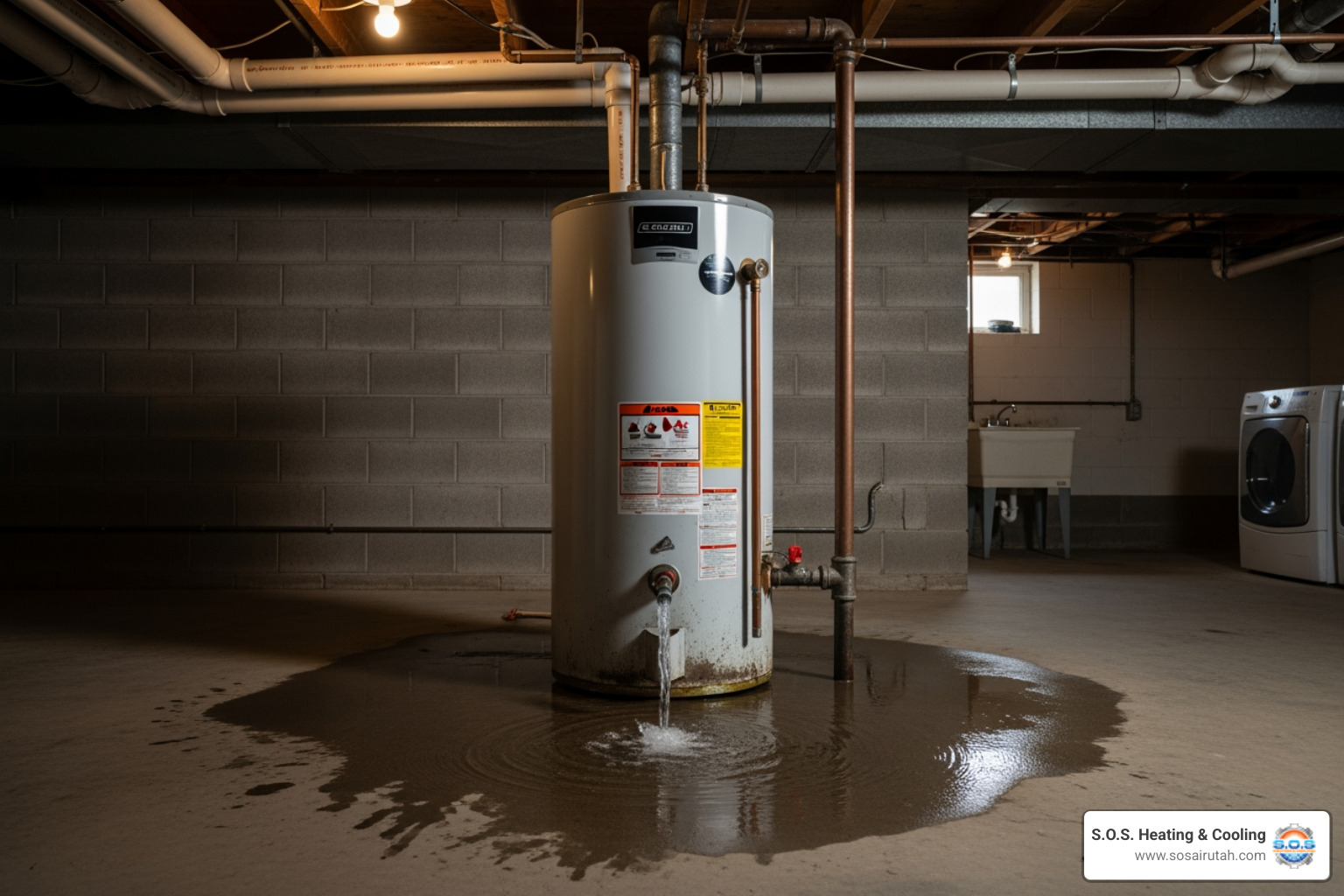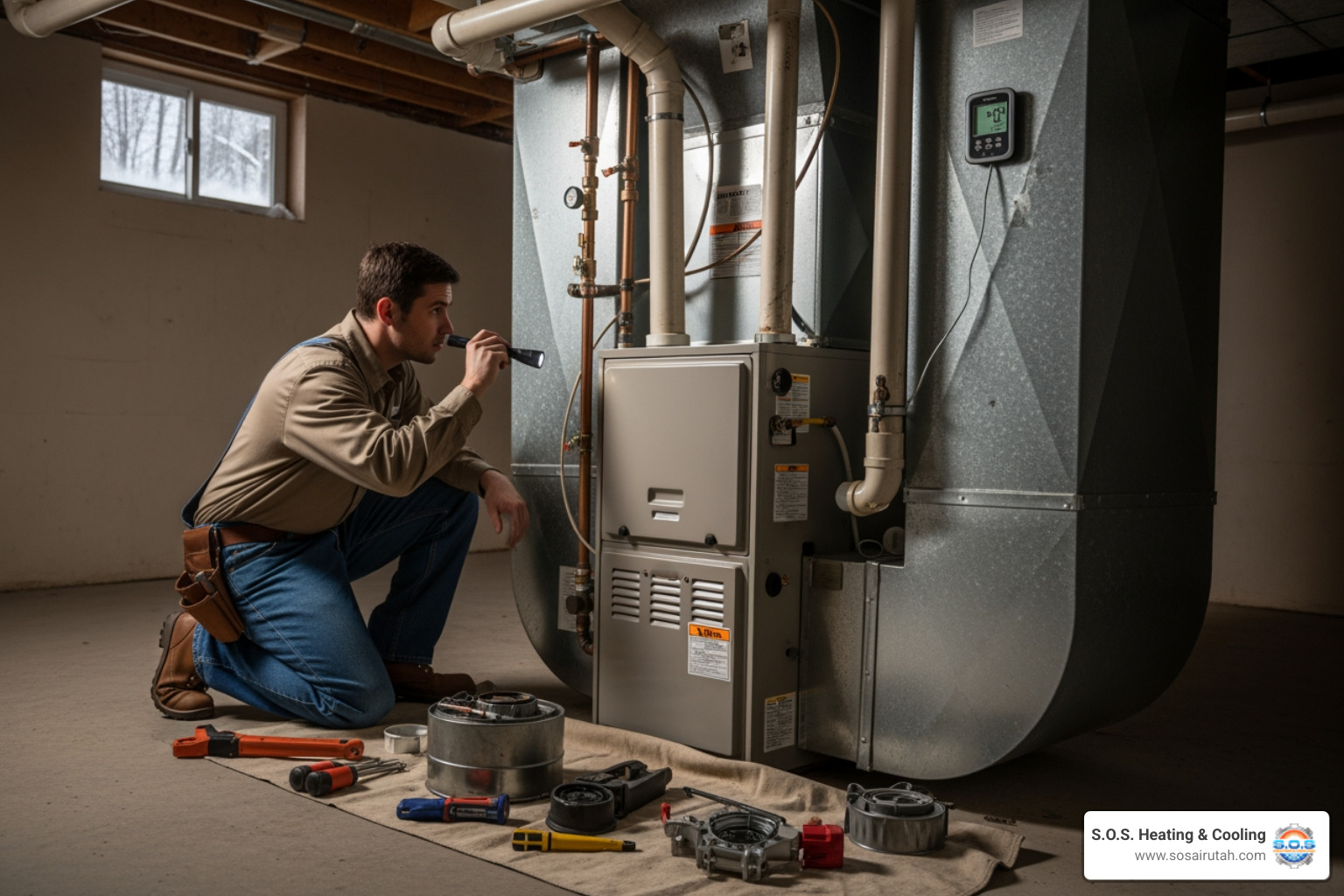
When summer temperatures hit their peak in Layton, your air conditioner is one of the most important systems in your home. If it's not keeping up with the heat, the problem could be coming from a damaged condenser coil. This part of your AC plays a key role in pushing heat out of your home. When problems happen with it, the entire system can struggle, causing noticeable changes in your comfort and energy usage.
Many homeowners aren't aware that the condenser coil can get damaged over time. Wear and tear, weather exposure, and lack of maintenance are common issues. Recognizing when the coil is causing system problems can save time, money, and prevent unexpected breakdowns during July and August. Knowing what to look for, what causes the issue, and how to respond can help you avoid a complete AC shutdown.
Common Causes Of AC Condenser Coil Damage
Most AC condenser coil problems don't start suddenly. They build up over time and often go unnoticed until performance drops. When damage does happen, it’s usually tied to a few clear sources.
1. Dirt And Debris Accumulation
Outdoor condenser units are exposed to the elements all year long. Over time, things like grass clippings, leaves, and dust collect on the coil. When that grime sticks, it creates a layer that makes it harder for the AC to release heat effectively. This buildup can also trap moisture, making the coil more likely to corrode.
2. Corrosion Over Time
Moisture combined with air pollutants can cause a chemical reaction that breaks down the metal on the coils. Corrosion weakens the fins and tubing, interfering with how well the heat is released during cooling. If left unchecked, corrosion can eventually cause refrigerant leaks.
3. Physical Damage From Outdoor Elements
Coils can also be bent or crushed by storms, hail, or accidental impact from landscaping tools. Even small dents can lower airflow significantly. When airflow is blocked, the system has to work harder and wear down faster. Over time, this raises the chances of more serious damage.
A real example seen in Layton involved a backyard AC unit placed too close to a garden. Over a few seasons, damp soil, overgrown plants, and frequent sprinkler sprays caused consistent moisture to settle near the coil. Corrosion developed quickly, shortening the life of the unit. A protective barrier could have prevented it.
Signs Your AC Condenser Coil May Be Damaged
It’s not always easy to tell if the condenser coil is the cause of a cooling problem. The signs often look like other AC issues. However, if you notice a few of these symptoms together, it’s time to have the coil checked.
- Reduced Cooling Output
You might notice the house feels warmer than usual even when the thermostat is set correctly. This is often the first warning sign that the condenser coil is clogged or damaged.
- Higher Energy Bills
A damaged coil forces the AC to run longer because it can't get rid of heat as efficiently. This uses more electricity and raises your monthly costs, even if nothing else in the home has changed.
- Unusual Noises From The Outdoor Unit
Hissing, humming, or rattling can mean parts of the condenser coil are damaged or loose. Coils don’t usually make noise on their own, but associated damage in the same area can cause odd sounds.
Each of these problems could be tied to other underlying causes, which is why it’s important to get a proper inspection before more serious damage occurs. Since condenser coils are located outdoors, it’s not something most homeowners check regularly. That’s why attention to early signs matters.
Steps For Troubleshooting AC Condenser Coil Issues
Once signs of coil damage start showing, it’s important to act quickly. Ignoring the issue won’t make it go away. If your AC seems to be struggling during a Layton summer, here are some recommended steps to identify possible coil trouble before it gets worse.
- Inspect and Clean the Coil
The first step is checking the outdoor unit for visible dirt, leaves, or grass clippings stuck to the coil. If there's buildup, it may be restricting airflow. A gentle rinse with a hose (never a pressure washer) can help remove surface grime, but deeper cleaning should be handled by our professionals to avoid damaging the coil.
- Look for Visible Damage
Examine the coil area for bent fins or signs of corrosion. Damaged fins block heat from escaping and reduce cooling performance. If there’s refrigerant staining or signs of rust, that could mean a leak or weakening of the coil’s surface.
- Make Sure There’s Good Airflow
Keep at least two feet of clear space on all sides of the outdoor unit. Fencing, bushes, tree limbs, or junk can block airflow. Poor ventilation leads to overheating and stresses the system.
- Check for Refrigerant Leaks
Leaks aren’t always easy to spot without the right tools, but signs like ice on the coil or oily patches on the tubing usually mean something’s wrong. If you notice these, shut off the system and call our technicians immediately.
If you're unsure what to look for or the system still won't cool properly, further inspection from trained professionals in Layton is the best next move.
When To Call Our Professionals For Help
There’s a limit to what homeowners can and should do when it comes to AC systems. If the basic steps above haven’t solved anything, other problems may be hiding within the unit. Here’s when it’s time to bring in our professionals:
- The cooling doesn’t return to normal after cleaning or clearing the area
- The outdoor unit is making strange noises, even after inspection
- There are signs of leaks or excessive coil damage
- Your energy bill keeps rising without an obvious reason
- The house is still uncomfortable, no matter the thermostat setting
Our technicians have the tools to run full diagnostics and confirm if the coil is the main problem or part of a bigger system failure. Delaying service when performance is this low can lead to heavier damage, including failures in the compressor or refrigerant system.
For example, in one Layton home, the homeowner waited through two months of reduced cooling, thinking the problem would fix itself after outdoor temperatures dropped. By the time they scheduled service, the damaged coil had caused stress on the compressor, leading to an expensive replacement that could have been avoided with earlier attention.
Keep Your Layton Home Cool This Summer
In warmer months, your AC system should be working at full capacity. If it’s not, the condenser coil may be one of the culprits. Taking small steps to troubleshoot and maintain this part of your unit can pay off in comfort, performance, and reliability.
The coil is exposed to weather, dirt, and neglect more than most parts of your system. Because of that, it wears out faster if not routinely inspected and cleaned. Regular maintenance visits help slow down the damage and catch coil problems before they become emergencies.
Cooling problems during summer in Layton can go from annoying to serious fast. If your AC starts showing signs of strain or your coil looks damaged, the safest step is to schedule a service visit with professionals who know what to look for. That way, you get dependable cooling and peace of mind when the temperatures climb.
If your AC is struggling to keep up with the summer heat in Layton and you notice cooling issues, unusual noises, or rising energy bills, it may be time to have the system checked by S.O.S. Heating & Cooling. For expert service that ensures reliable performance all season long, schedule your AC repair in Layton with our team. For a quick estimate or to book a service visit, please contact us today.
Explore Our Latest Insights and Updates in Plumbing Services

My hot water heater is leaking. Who are the best emergency plumbers in Salt Lake City?

Don't Freeze! How to Get Emergency Furnace Maintenance in Bountiful Fast

Finding Your Perfect Match: Expert Heating Tune-Ups in SLC






.avif)